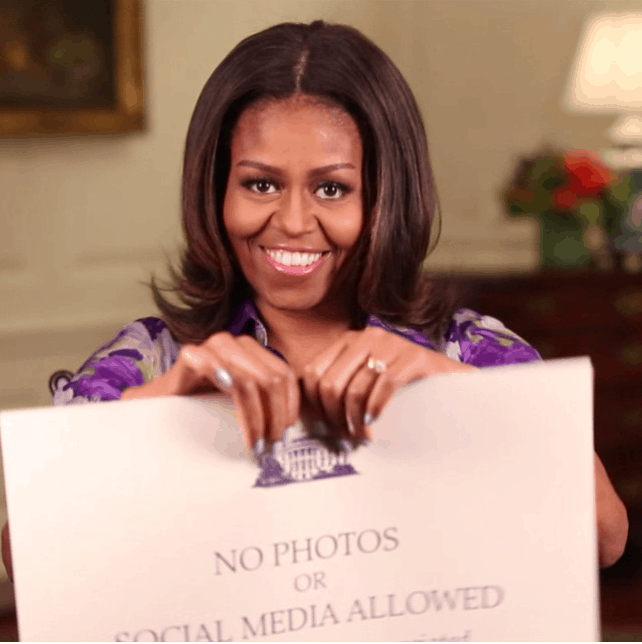
There was a time when reading the news was a way to wind down at the end of the day. Your Grandpa would spend his day at work and then come home, kiss your Grandma on the cheek, and sit down to watch Walter Cronkite tell him about the state of the world.
Today, consuming the news isn’t so much an event as it is part of our personal branding. We consume our feeds throughout the day and share the parts of it that affirm the identities we like to project. If we deeply care about feminism, we share news stories that highlight the ongoing battle for gender equality around the world. If we care about religious freedom, we’re more likely to be purveyors of those stories.
For the most part, there’s nothing wrong with this. There’s a lot of news in the world, and the only way to manage the deluge is to filter it to the things we actually care about.
But here’s the thing: If you’re going to share news with people, you’ve got to be an adult about it. The news is made up stories culled from life, and life is complicated. Complicated things are strictly for mature adults, so we’d best be mature about all this. Brian Williams and Rolling Stone Magazine dropped the ball here, and the public trust in them has been deeply damaged. Our own reputations are on the line when we share news—and as with them, the fallout for getting it wrong can have some pretty severe consequences.
Here are a few ways to make sure you’re reading the news like an adult:
1. Read the Whole Article.
Life is short, news comes fast, and you’re consuming dozens—probably hundreds—of headlines every day. You don’t have time to read all of them, but you should definitely try to read all of everything you share.
For example, last week, pundit Allen West posted an article titled ”What Jurassic World actor just said about Christianity will probably ruin his career.” The article posits that since Chris Pratt has been open about his habit of praying, Hollywood’s cabal of devious liberals will kick him out of the club.
It’s nonsense, of course. The article gives no evidence to support the theory. At this point, Pratt couldn’t ruin his career if he wanted to. But the headline fits a narrative that’s popular among certain conservative groups
The entire story never fits into the headline—it only rarely fits into the entire article, for crying out loud. Part of being informed is reading past the headlines. Pay attention to the nuances, and look for details that suggest there’s more to the story than you’re being told.
2. Check Your Sources
This is common knowledge, but it bears repeating: Just because it’s on the Internet doesn’t mean it’s true.
Before the Enlightenment, the Church was considered the great validator of information. If the Roman Church approved, it was considered to be true. After the Enlightenment, science became the great approver. Today, if we’re being honest, it’s design.
Most of us know better than to trust websites with black backgrounds, X-Files-green text and dancing alien head GIFs, but if a website or television program is slickly designed, we’re inclined to believe it.
Take a closer look. Check the article’s links and see where the facts are coming from. If the site you’re reading is posting a sensational story that nobody else is reporting, double check its veracity. There are many reputable sites out there (like this one) with a list of “news” sources of dubious reliability. If the news you’re posting comes from a source that has been caught with its pants down in the past, think twice before posting it as fact.
3. Check Your Bias.
For better or worse—well, definitely for worse—news today is inevitably biased. Mostly gone are the days of a reliably objective news source. News today is all about catering to a niche market, and the markets all have different leanings.
Now, just because news is inevitably biased doesn’t mean it’s inevitably false. It just means you’re getting your news through a certain lens, and that lens is going to slant the delivery.
For example, in the wake of Darren Wilson’s shooting of Mike Brown, the Department of Justice released their predictably divisive report on the Ferguson Police Department, the proudly left-wing Salon ran an article titled 8 Horrifying Revelations in the Justice Department’s Ferguson Report. Meanwhile, the blatantly conservative Breitbart posted “DOJ Won’t Pursue Federal Charges for Ferguson’s Darren Wilson.”
Both headlines are true. The Justice Department did find that Officer Wilson’s actions were justified under the circumstances. But it also found a long history of truly sickening racial discrimination within the Ferguson PD. Both headlines were a part of the story, and both provided a part of the story different people with different agendas could capitalize on. Which is why it’s important to…
4. Read News From Places You Disagree With
It’s pretty easy to turn your Facebook and Twitter feed into a hivemind of yes men who only say what you want to hear. If you dislike President Obama, you can easily turn your timeline into an unending list of his failures. If you approve of him, you can filter it into a treasure trove of his victories. That the truth is probably somewhere in the middle hardly matters.
That’s why, if you really want to know what you’re talking about when it comes to news, you need to include some voices from the other side. Not the devil’s advocate sort—the Infowars and Gawkers of the world—but reasonable, intelligent discourse we can disagree with while still respecting. The news media is full of reasonable, charitable progressives and conservatives who are interested in promoting mature discourse about important issues, and we do well to open our minds up to their insights. Who knows? You might just learn something.
5. Read Things Besides the News
Reading the news makes you feel informed and up-to-date, which is a good feeling. But for a healthy perspective on all that information, you’re going to have to get some distance from it, and the best way to do that is to read things that aren’t the news.
For information, you’ve got to read the news. But for wisdom, you’ll need to read novels. Or poetry. Or long, long books by brilliant men and women. You might even have to read the Bible. The thing is, these sorts of literature provide insight for our lives that we can apply to the events of the world around us. They teach us how to read the news.






















